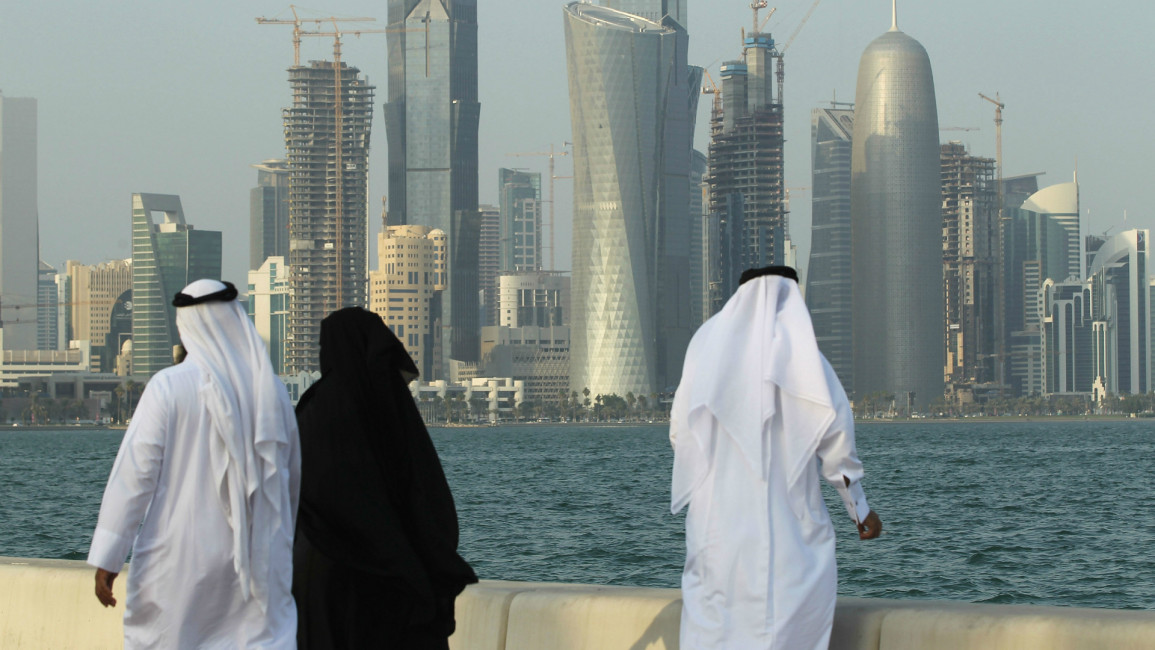
Social Commentary: The 'khaleeji' cultural and modern identity struggle
As a little girl, I grew up thinking that my identity should just be one entity; a copy of my father’s identity and his father before him. I was convinced that the more accurately I mimicked them, the closer I would be to my roots. Today, I feel indifferent. I take every day as a new opportunity to be my own person, though I find it very challenging as most from the Gulf, khaleejis, still have that common misconception I once had as a child. I believe that the Gulf society has a problem, a problem with acceptance; accepting the other, the new, the different. I find myself cringing on a daily basis to social networking trolls every time they claim that, "that person does not represent us." I mean, just because they do not fit a specific box or list of ideals does not make them any less Qatari, Bahraini or whichever Gulf State.
I cringe not because it bothers me that most people believe they have the authority to decide on behalf of the whole population on who represents them or not; I cringe because they do not understand the core of khaleeji identity and individuality. It saddens me to see the ignorance, especially when they themselves are a mixture of many different cultures, languages, traits and characteristics. So why are we, as a society, enforcing and encouraging one way of being, why are we conditioning ourselves when the essence of khaleejism lies in our variations and versatility?
 |
Identity is never constant, it is in constant change. |  |
Yes, I know that few hundred words are not enough to tackle this question, but at least it is enough to spread awareness of the crisis we live in. The reason why identity is a difficult topic to address is because it is not tied to a certain time, place or a group of people. It is much deeper than that, and it may have multiple branches and sub-branches. It can take up many forms while it simultaneously continues to grow. Identity is never constant, it is in constant change. The question of identity is one I find myself grappling with quite often, especially coming from the Arab Gulf, an area that is rich in tradition and culture, but is also facing many challenges in trying to preserve its cultural identity in the age of economic and social development.
Historically speaking, Gulf studies scholars have highlighted that the diversity in the Gulf is not a modern phenomenon that came with the oil boom and rapid development. The Arab States were geographically and strategically centered, which easily made Gulf ports the gateway to the world. As a result, the khaleejis were in constant contact with multiple cultures, religions and languages as early as the 1600s. Their cultural identity, language, attire and even cuisine were influenced by South Asian, Persian, African and even European merchants and travelers who seasonally flocked to their ports. The khaleejis themselves were known to be travelling merchants, and created commercial settlements as close as Zanzibar and as far off as China.
 |
We, as khaleejis, should start celebrating our diversity and all the different things that make us who we are, rather than trying to confine each other to a handful of ideals. |  |
We, as khaleejis, should start celebrating our diversity and all the different things that make us who we are, rather than trying to confine each other to a handful of ideals. These restrictions that we have collectively put on ourselves will hinder our development and limit our creativity – one cannot go forward without acknowledging how they have come to be. As a society, we need to be careful before we end up being stuck to a label that does not truly define us. In short, in order to be ready for progress we need to start accepting each other’s differences and individuality!
Sarah Al Derham is Teaching Assistant at the Gulf Studies Centre in Qatar University and holds an MA in Critical Media and Cultural Studies from SOAS.
Al Derham is also an award winning documentary filmmaker who produced 8 films tackling different issues and themes in the Gulf society; her films have been screened locally and internationally in film festivals and art exhibitions in Doha, UAE and London.




